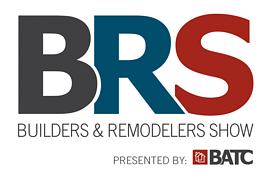3 Financial Strategies for a More Scalable Construction Business
 As 2017 dawns, the outlook for the construction industry is optimistic. Despite setbacks experienced during the Great Recession, the industry is set to add 790,400 jobs over the decade of 2014 to 2024, accounting for the majority of new jobs in the goods-producing sector. Real output will grow 2.8 percent annually during this period. In 2017, total U.S. construction starts will increase 5 percent, reaching $713 billion, anticipates Dodge Data & Analytics.
As 2017 dawns, the outlook for the construction industry is optimistic. Despite setbacks experienced during the Great Recession, the industry is set to add 790,400 jobs over the decade of 2014 to 2024, accounting for the majority of new jobs in the goods-producing sector. Real output will grow 2.8 percent annually during this period. In 2017, total U.S. construction starts will increase 5 percent, reaching $713 billion, anticipates Dodge Data & Analytics.
For contractors, this is great news, but it also presents the challenge of scaling up to meet growing demand. Scaling up requires not only hiring more workers and buying more material, but also adjusting your financial strategy to cover your increased overhead expenses without hurting your cash flow and profits. Here are three financial strategies for successfully scaling up in 2017.
Scale up Revenue while Scaling Down Costs and Expenses
A scalable remodeling business model is designed to allow you to increase revenue while holding both job costs and overhead expenses down. To be scalable, your financial plan should aim for gross profit margins of 40 percent or more (minimum of a 1.67 markup).
 To achieve this level of gross profit margin, one fundamental strategy is increasing your revenue. The key to increasing your revenue is improving your marketing and sales. One of the most efficient ways to improve your marketing is by improving your positioning through a better unique selling proposition (USP): a brief statement that summarizes what you offer customers that your competition doesn’t.
To achieve this level of gross profit margin, one fundamental strategy is increasing your revenue. The key to increasing your revenue is improving your marketing and sales. One of the most efficient ways to improve your marketing is by improving your positioning through a better unique selling proposition (USP): a brief statement that summarizes what you offer customers that your competition doesn’t.
To refine your USP, narrow down your ideal target market. For instance, is there a certain neighborhood or a certain type of building that would be more profitable to specialize in? Research what your target market is most seeking in a construction contractor. For example, are they price shoppers or are quality or service bigger priorities for them? Craft your USP to emphasize what your target market most values and make sure all your marketing material reflects your new USP.
Along with increasing your revenue, the other half of keeping a high profit margin is keeping expenses low. Many construction businesses fail because they can’t cover the cost of overhead. Finding ways to reduce the money you must pay for running your business is key to minimizing your expenses. Taking the time to research different organizational charts, industry best practices, project management methods, business management software and employee compensation strategies based on performance. Investing in these areas now can help your business reduce overhead through efficiency of operations as well as economy of scale as the business grows.
Maintain Efficiency through Automation
 Another effective strategy to lower job costs is automation. Automation can help you lower the costs of materials by helping you plan more precisely to avoid unnecessary waste. J.E. Dunn has partnered with Autodesk and Microsoft to develop Lens, a cloud-based software tool that combines 3-D virtual modeling with instantly-calculated cost estimates for each component of your building project.
Another effective strategy to lower job costs is automation. Automation can help you lower the costs of materials by helping you plan more precisely to avoid unnecessary waste. J.E. Dunn has partnered with Autodesk and Microsoft to develop Lens, a cloud-based software tool that combines 3-D virtual modeling with instantly-calculated cost estimates for each component of your building project.
Although not common yet in residential remodeling, another way automation can help cut materials costs and waste is by using 3-D printing. 3-D printing allows you to select from a wider range of cost-efficient materials, while speeding up the building process. Last year, Chinese company Huashang Tengda was able to assemble a 3-D-printed house in just 45 days. Remember, many said nail guns would never catch on!
Keep Costs and Expenses Down with Outsourcing
 Outsourcing is another proven way to cut labor costs both in the field as well as the office. Many successful large companies outside our industry have used outsourcing effectively to streamline their labor expenses. For instance, Google relies heavily on revenue from pay-per-click advertisers who pay to have their results featured in search engine rankings. Maintaining its advertising revenue requires a large sales support team, which Google has outsourced. Amway is another company that outsources its sales, relying on a distributor model to promote direct sales. In our industry many contractors already outsource activities such as design, engineering, building permit procurement, sales, lead intake and prequalification, RRP demo, specialty trades and even general carpentry.
Outsourcing is another proven way to cut labor costs both in the field as well as the office. Many successful large companies outside our industry have used outsourcing effectively to streamline their labor expenses. For instance, Google relies heavily on revenue from pay-per-click advertisers who pay to have their results featured in search engine rankings. Maintaining its advertising revenue requires a large sales support team, which Google has outsourced. Amway is another company that outsources its sales, relying on a distributor model to promote direct sales. In our industry many contractors already outsource activities such as design, engineering, building permit procurement, sales, lead intake and prequalification, RRP demo, specialty trades and even general carpentry.
As these examples illustrate, you can outsource functions that are part of your core business if it is more efficient to delegate them to specialists than to maintain in-house talent. For instance, there is no need to pay for the expense of in-house 3-D drafting when you can easily outsource it. With the right plan and system you can also easily outsource routine peripheral functions such as bookkeeping and payroll.


 Though going above and beyond with the project at hand is usually the No. 1 priority for contractors, creating and cultivating client relationships follows closely behind in position No. 2. Any business owner and manager knows that building and maintaining great relationships with clients — otherwise known as relationship marketing — is key to a company’s success. Many companies, however, do not employ a dedicated customer relationship manager (CRM). But that doesn’t mean relationship marketing should be pushed to the wayside. We’ve gathered four tips on how you can help cultivate positive relationships with clients right now:
Though going above and beyond with the project at hand is usually the No. 1 priority for contractors, creating and cultivating client relationships follows closely behind in position No. 2. Any business owner and manager knows that building and maintaining great relationships with clients — otherwise known as relationship marketing — is key to a company’s success. Many companies, however, do not employ a dedicated customer relationship manager (CRM). But that doesn’t mean relationship marketing should be pushed to the wayside. We’ve gathered four tips on how you can help cultivate positive relationships with clients right now: Another best practice is to treat every client like your
Another best practice is to treat every client like your 
 For contractors, brand reputation can make the difference between winning and losing a big contract. A case in point is DuPont. Over the past two decades, DuPont has built a reputation as a safety leader in the chemical industry, enabling its Sustainable Solutions unit to
For contractors, brand reputation can make the difference between winning and losing a big contract. A case in point is DuPont. Over the past two decades, DuPont has built a reputation as a safety leader in the chemical industry, enabling its Sustainable Solutions unit to  Delivering superior customer service lays a foundation for a good reputation, but in today's digital environment, it's also important to get customers to talk about you online. What customers say about you on sites such as Google Places and Yelp has a huge impact on your online reputation.
Delivering superior customer service lays a foundation for a good reputation, but in today's digital environment, it's also important to get customers to talk about you online. What customers say about you on sites such as Google Places and Yelp has a huge impact on your online reputation. One of the biggest keys to protecting your brand's reputation is how you handle complaints. The most important step is to listen. Empathize with the customer's situation. Make sure you understand what the problem is before you attempt to resolve it, and make sure they agree with any resolution you propose before proceeding. If you can't resolve the issue yourself, find out where to best direct their complaint. The
One of the biggest keys to protecting your brand's reputation is how you handle complaints. The most important step is to listen. Empathize with the customer's situation. Make sure you understand what the problem is before you attempt to resolve it, and make sure they agree with any resolution you propose before proceeding. If you can't resolve the issue yourself, find out where to best direct their complaint. The  Most contractors can't explain how they do business, they just make things happen. In a smaller remodeling business, say up to about $5-700K of installed work, this may get you by. But as you grow your business, particularly if you want to
Most contractors can't explain how they do business, they just make things happen. In a smaller remodeling business, say up to about $5-700K of installed work, this may get you by. But as you grow your business, particularly if you want to  Be careful here. If you don't explain how you do business before winning the bid on an architect driven remodeling project you might just be told how you will do business. Examples include how and when you will be paid, what will be considered a change order vs. what you should have assumed to be included, what margin you can earn on change orders, and what hoops you will need to jump through before receiving progress payments and final payments. Be sure to carefully read any AIA Contracts before signing them.
Be careful here. If you don't explain how you do business before winning the bid on an architect driven remodeling project you might just be told how you will do business. Examples include how and when you will be paid, what will be considered a change order vs. what you should have assumed to be included, what margin you can earn on change orders, and what hoops you will need to jump through before receiving progress payments and final payments. Be sure to carefully read any AIA Contracts before signing them. On April 2nd, 2015 I presented a half day marketing workshop titled "Choosing and Targeting the Right Customers and Projects Types for Your Business". The workshop was billed as the keynote session for the
On April 2nd, 2015 I presented a half day marketing workshop titled "Choosing and Targeting the Right Customers and Projects Types for Your Business". The workshop was billed as the keynote session for the  Take advantage of the timing
Take advantage of the timing  Stop taking just any customers and jobs. Be selective about who you will let become your customers. For example why not only work with people who would say they are "working with" you, not those who would say you are "working for them". Also, be selective about the project types you go after. For example why not attract people who want high quality products. If you sell using one markup across all cost categories the gross profit dollars earned on material intensive projects due to higher price point products is an easier way to meet overhead and net profit goals, both now and in the future, particularly when compared to selling and producing labor intensive projects.
Stop taking just any customers and jobs. Be selective about who you will let become your customers. For example why not only work with people who would say they are "working with" you, not those who would say you are "working for them". Also, be selective about the project types you go after. For example why not attract people who want high quality products. If you sell using one markup across all cost categories the gross profit dollars earned on material intensive projects due to higher price point products is an easier way to meet overhead and net profit goals, both now and in the future, particularly when compared to selling and producing labor intensive projects. The old traditional marketing methods of trying to find prospects who want your services now and interrupting them to get their attention no longer work. Today consumers are the ones deciding how they will find and qualify their project ideas as well as the contractor they will work with. Instead use inbound marketing tactics that help consumers find your business. This should be one of the two primary purposes of your marketing and can be accomplished on your web site using SEO tactics and good content on your site’s pages as well as your blog. The other primary purpose of your marketing, particularly at your web site, should be to help prospects decide if what you offer and how you do business are right for them. In other words your marketing should help them prequalify themselves so they either want to contact you or know they shouldn't.
The old traditional marketing methods of trying to find prospects who want your services now and interrupting them to get their attention no longer work. Today consumers are the ones deciding how they will find and qualify their project ideas as well as the contractor they will work with. Instead use inbound marketing tactics that help consumers find your business. This should be one of the two primary purposes of your marketing and can be accomplished on your web site using SEO tactics and good content on your site’s pages as well as your blog. The other primary purpose of your marketing, particularly at your web site, should be to help prospects decide if what you offer and how you do business are right for them. In other words your marketing should help them prequalify themselves so they either want to contact you or know they shouldn't.
 In the design industry we have many challenges besides meeting the concerns, wants, and needs of our precious clients. Many businesses have resorted to marketing on the basis of something for free. It prompts clients to want what is offered for free, however, at the same time, causes the knee jerk reaction question to arise, “How can it be free, what’s the catch”?
This poses itself as one of the challenges most noteworthy; the honest perception of value that is created. For a certainty, most trends are to downplay, for market segmenting purposes, the true value of reputable trades or product.
In the design industry we have many challenges besides meeting the concerns, wants, and needs of our precious clients. Many businesses have resorted to marketing on the basis of something for free. It prompts clients to want what is offered for free, however, at the same time, causes the knee jerk reaction question to arise, “How can it be free, what’s the catch”?
This poses itself as one of the challenges most noteworthy; the honest perception of value that is created. For a certainty, most trends are to downplay, for market segmenting purposes, the true value of reputable trades or product.  To advertise something for “free” in reality means something else needs to recoup the costs related to the “free” product or service. This is, in all respects, “Bait and Switch” by offering something for free that really isn’t. Doing so may call into question being honest in our business dealings.
To advertise something for “free” in reality means something else needs to recoup the costs related to the “free” product or service. This is, in all respects, “Bait and Switch” by offering something for free that really isn’t. Doing so may call into question being honest in our business dealings. Lowest cost marketing is not being honest in business dealings, as it may not spell out the true reason something is less, or much less, as many products and services, on the surface, appear to be the same. The adage, “You Get What You Pay For”, is usually visited after the disappointment comes, once the bargain fails to meet the expectation and the delight for the savings is replaced by the sinking feeling, “I’ve been had again”. As designers, is this really the outcome we want our clients to experience, let alone, having to deal with it once exposed?
Lowest cost marketing is not being honest in business dealings, as it may not spell out the true reason something is less, or much less, as many products and services, on the surface, appear to be the same. The adage, “You Get What You Pay For”, is usually visited after the disappointment comes, once the bargain fails to meet the expectation and the delight for the savings is replaced by the sinking feeling, “I’ve been had again”. As designers, is this really the outcome we want our clients to experience, let alone, having to deal with it once exposed?
 I constantly read forum posts about contractors’ being shocked to discover they are being re-directed away from their own company when searching for their own company online, and then are directed to a lead generation service. The issue is rampant – but unfortunately, the situation is typically inadvertently created by the contractors’ themselves.
I constantly read forum posts about contractors’ being shocked to discover they are being re-directed away from their own company when searching for their own company online, and then are directed to a lead generation service. The issue is rampant – but unfortunately, the situation is typically inadvertently created by the contractors’ themselves. We read the Terms & Conditions of numerous Lead Generation companies. It is important to note that every lead generation company views anything you submit to their site for content as their own. That includes your business biography, services, testimonials and pictures. The terms sometimes have a permutation of wording that states "the contractor agrees that a consumer MAY NOT be directed back to the contractor if the contractor does not have the appropriate spending limit and other limitations".
We read the Terms & Conditions of numerous Lead Generation companies. It is important to note that every lead generation company views anything you submit to their site for content as their own. That includes your business biography, services, testimonials and pictures. The terms sometimes have a permutation of wording that states "the contractor agrees that a consumer MAY NOT be directed back to the contractor if the contractor does not have the appropriate spending limit and other limitations".  The contractor is asked to sign up, pass along his/her identity to the lead generation company, and the lead generation company can use the information anyway it wants if you do not pay them forever.
The contractor is asked to sign up, pass along his/her identity to the lead generation company, and the lead generation company can use the information anyway it wants if you do not pay them forever.  So in summary, there are only two ways to win at getting more online lead opportunities:
So in summary, there are only two ways to win at getting more online lead opportunities:
 Most remodelers, but certainly not all, rely heavily on referrals and repeat customers as they grow their businesses. This may keep a contractor doing a low volume of work busy, but relying so exclusively on referrals won't be adequate if you want to become a construction business owner, break the $1Million installed sales threshold and develop a constantly growing business.
Most remodelers, but certainly not all, rely heavily on referrals and repeat customers as they grow their businesses. This may keep a contractor doing a low volume of work busy, but relying so exclusively on referrals won't be adequate if you want to become a construction business owner, break the $1Million installed sales threshold and develop a constantly growing business. There are many customer types out there all with their own expectations when it comes to working with a remodeler. Successful remodeling businesses are those that strategically decide who they will be and who they will serve. If you choose to work for people who buy on price and expect more than they are willing to pay for, you will get more work from them. And because people tend to hang out with other people just like them, your past customers will refer you to more customers just like them. Before you do marketing to grow your business decide and define who you want as your customer. Also, think about the project types that make sense for the business you want to develop and grow. For example pull and replace kitchens and bathrooms may not be sexy or all that challenging to you, but remember you are building a company and a team of employees to complete what your company decides to sell. If you decide to build complicated and or highly detailed projects you will need the appropriate systems and staff to estimate, sell and produce that level of project to the expectations of your targeted client type. Choose wisely.
There are many customer types out there all with their own expectations when it comes to working with a remodeler. Successful remodeling businesses are those that strategically decide who they will be and who they will serve. If you choose to work for people who buy on price and expect more than they are willing to pay for, you will get more work from them. And because people tend to hang out with other people just like them, your past customers will refer you to more customers just like them. Before you do marketing to grow your business decide and define who you want as your customer. Also, think about the project types that make sense for the business you want to develop and grow. For example pull and replace kitchens and bathrooms may not be sexy or all that challenging to you, but remember you are building a company and a team of employees to complete what your company decides to sell. If you decide to build complicated and or highly detailed projects you will need the appropriate systems and staff to estimate, sell and produce that level of project to the expectations of your targeted client type. Choose wisely. Your marketing should serve two very important purposes. The first is to help your target customer type(s) find you. The second is to convert leads into sales. The marketing tactics you use should support these two goals. One marketing tactic that can be really effective at accomplishing both could be your company web site. For example, done well, SEO can be used so prospects searching online for certain services and contractor types can find your business, and find it on the first page of search engine results. Goal #1 achieved. But once you get them to your site you also need to differentiate your business from other businesses in the marketplace
Your marketing should serve two very important purposes. The first is to help your target customer type(s) find you. The second is to convert leads into sales. The marketing tactics you use should support these two goals. One marketing tactic that can be really effective at accomplishing both could be your company web site. For example, done well, SEO can be used so prospects searching online for certain services and contractor types can find your business, and find it on the first page of search engine results. Goal #1 achieved. But once you get them to your site you also need to differentiate your business from other businesses in the marketplace 
 In my opinion when any business seeks to be competitive it typically becomes a commodity. By that I mean the buying public looks at that business and or it’s offering as being the same as their other choices. When consumers see a product or service as a commodity they ultimately make their choice between available options based on price. By trying to remain competitive contractors playing in this sandbox become bidders in a reverse auction where the loser is the one who wins.
In my opinion when any business seeks to be competitive it typically becomes a commodity. By that I mean the buying public looks at that business and or it’s offering as being the same as their other choices. When consumers see a product or service as a commodity they ultimately make their choice between available options based on price. By trying to remain competitive contractors playing in this sandbox become bidders in a reverse auction where the loser is the one who wins.  When I ask how they know they are the most expensive most contractors tell me their prospects are the source of their assumptions. For those using their prospects' feedback to determine their price point in the marketplace remember, buyers are liars. The 11th commandment states that you can lie to a sales person and still go to heaven!
When I ask how they know they are the most expensive most contractors tell me their prospects are the source of their assumptions. For those using their prospects' feedback to determine their price point in the marketplace remember, buyers are liars. The 11th commandment states that you can lie to a sales person and still go to heaven! Now, if a contractor has done market research, for his or her local market, this may be true. Savvy contractors, those who know what price they need to charge, will sell at higher prices up to the point that a majority of protects stop buying. I would consider this to be true market research. However, these business not only know how to determine the true costs of doing business, they also typically have professional marketing programs to help them get in front of specific prospects and they employ professionally trained salespeople who know how to sell.
Now, if a contractor has done market research, for his or her local market, this may be true. Savvy contractors, those who know what price they need to charge, will sell at higher prices up to the point that a majority of protects stop buying. I would consider this to be true market research. However, these business not only know how to determine the true costs of doing business, they also typically have professional marketing programs to help them get in front of specific prospects and they employ professionally trained salespeople who know how to sell.

 I would suggest the same thing is currently happening to many contractors who resorted to similar tactics. To lower their prices they too at the start of the recent recession took on generic labels and stopped doing any marketing and advertising. They also offered their services with the promise that even at low prices consumers would get the same quality project the well known name brand contractors were offering. Like the generic food manufacturers of the 90's, now that the economy is improving, these contractors are finding it hard to sell anything at all.
I would suggest the same thing is currently happening to many contractors who resorted to similar tactics. To lower their prices they too at the start of the recent recession took on generic labels and stopped doing any marketing and advertising. They also offered their services with the promise that even at low prices consumers would get the same quality project the well known name brand contractors were offering. Like the generic food manufacturers of the 90's, now that the economy is improving, these contractors are finding it hard to sell anything at all.






